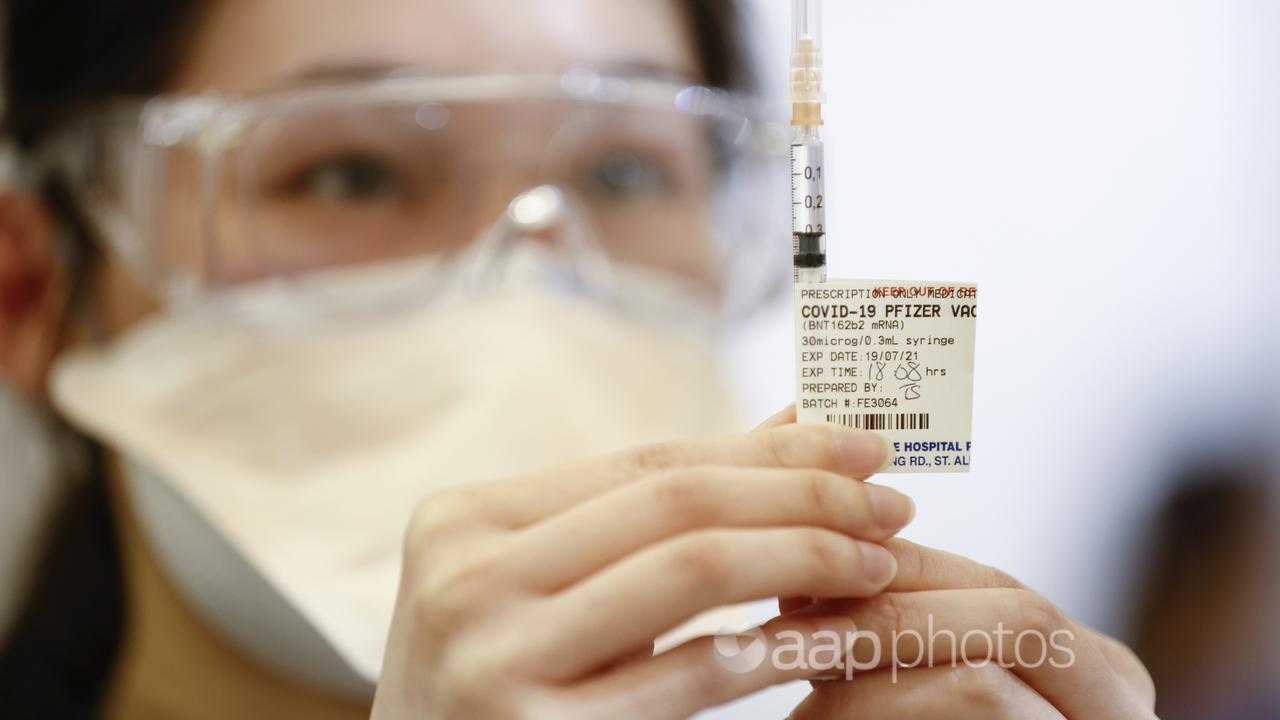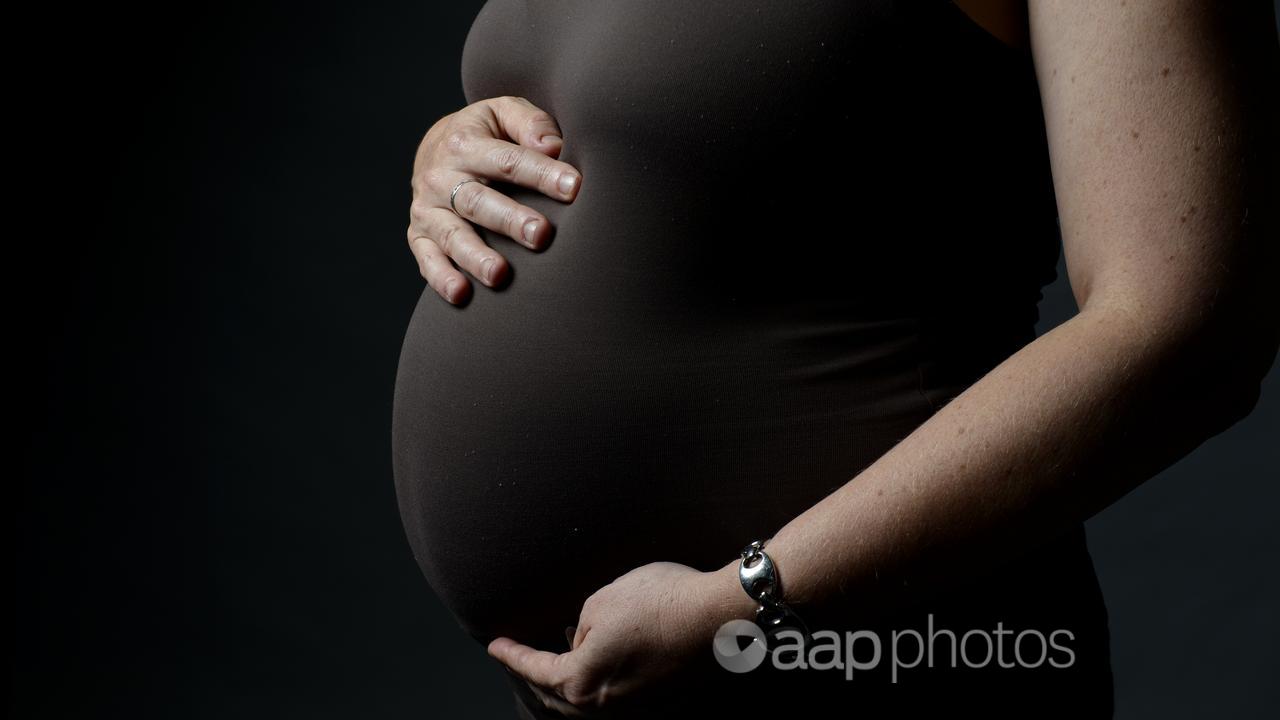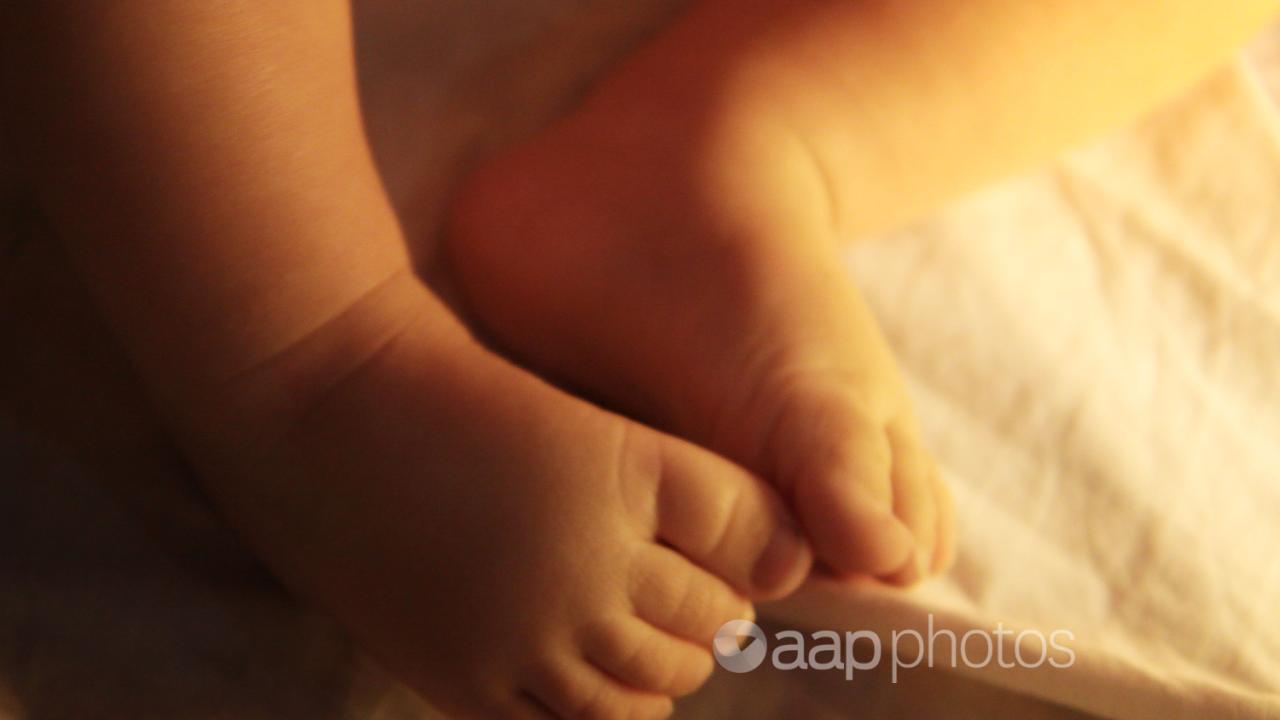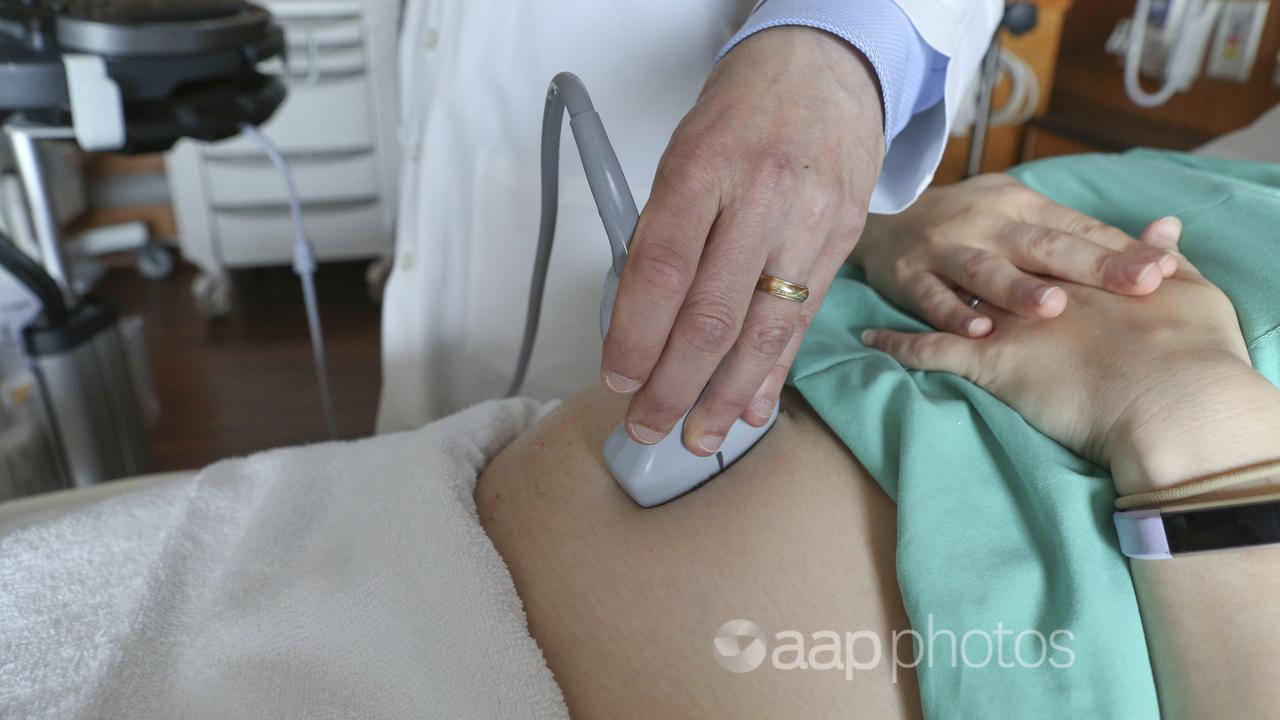Vaccine sceptics continue to push misinformation that COVID-19 jabs cause infertility despite no scientific evidence showing it to be true.
Experts told AAP FactCheck there was no evidence COVID vaccines affected fertility, miscarriages or long-term semen quality.
Multiple research studies have found vaccination does not degrade fertility in women or men. In contrast, vaccine opponents rely on anecdotes and unproven theories as supposed evidence.
Health professionals have cited misinformation about infertility as a persistent cause of vaccine hesitancy throughout the pandemic.

AAP FactCheck debunked claims about vaccines and infertility in January 2021, before Australia’s vaccine rollout began.
This updated check takes into account more recent research based on real-world vaccination outcomes.
Among those who still claim a link between COVID vaccines and infertility is Naomi Wolf, a US author with a history of promoting vaccine misinformation, as seen here, here and here.
She appeared in a Facebook video discussion hosted by Australian vaccine sceptics, featuring senators Alex Antic and Malcolm Roberts on April 28.
During the recording, Dr Wolf claimed COVID vaccines equated to a “360-degree attack on human reproduction”.
She said vaccine trial documents published by Pfizer showed the company had “a highly intentional focus on and premeditated designation of the materials to sterilise the next generation” (video mark 22min 15sec).

Dr Wolf also claimed women who experienced menstrual changes after vaccination could suffer long-term fertility problems and vaccinated men’s semen may be “harmful to conception, or possibly to women and to conception”.
She also suggested “baby boys of vaccinated mums” may become infertile.
None of the claims are backed by scientific evidence.
AAP FactCheck emailed Dr Wolf to ask if she could provide research supporting her claims and was passed on to an associate called Dr Chris Flowers.
He did not provide any scientific research backing the claims.
Instead, he said it would take at least five to 10 years for the claimed link between COVID vaccines and infertility to show up in academic studies.
“So no ‘scientific proof’ can be shown yet of damage to fertility but equally there can be no scientific evidence of safety either,” Dr Flowers said.
He said he instead relied on “surrogate” safety signals about vaccines, such as data published in Pfizer documents and EU periodic safety updates.

Several studies which investigated the impact of COVID vaccines on fertility found no reason for concern.
This study of COVID and fertility, published in the American Journal of Epidemiology in January 2022, enlisted more than 2000 women aged 21 to 45.
They were enrolled from December 2020 to September 2021 and asked to complete questionnaires about their lifestyle, medical factors and partners every eight weeks through to November 2021.
The researchers found COVID infection was associated with a short-term decline in fertility for men, but vaccination did not impair fertility in either partner.
In mid-2022, a group of health academics in Italy undertook a systematic review of 29 studies related to COVID vaccination and fertility.
They found no significant difference in pregnancy rates, testosterone levels or sperm volumes of vaccinated people when compared to unvaccinated people.
The researchers concluded COVID vaccines had no impact on human fertility and may instead protect against potential fertility impairment caused by the virus.
Some studies have suggested COVID vaccines may slightly alter menstrual cycles, though this Swedish study of three million women, published in May 2023, found no causal link between vaccination and menstrual changes.
Other studies have found COVID vaccination may temporarily reduce sperm count, possibly due to the immune system’s response to the jab or vaccine-induced fever.
However, there’s no evidence vaccines have any lasting effect on male fertility.

This 2022 Italian study, for example, tested claims COVID vaccines affected sperm by analysing semen quality among 106 men undergoing fertility treatment with their partner.
The researchers reported no significant change in the fertilisation rate of men before and after vaccination, leading them to conclude COVID jabs “did not affect sperm quality and fertilisation capacity” of men undergoing assisted reproductive technology treatments and “should be considered safe for men’s reproductive health”.
Researchers at the University of Miami’s urology department similarly found no significant decreases in any sperm parameters among a small cohort of 45 healthy men.
Conversely, the COVID virus itself does appear to negatively impact male fertility, at least temporarily.
Professor Mark Hedger, a senior researcher from the Centre for Reproductive Health at the Hudson Institute of Medical Research in Melbourne, told AAP FactCheck the risks associated with vaccination were “minuscule” compared to those posed by the virus.
“Quite apart from the frequent serious consequences of respiratory, cardiac and neurological damage, long-term disability or death due to COVID-19 infection, we know that COVID-19 can infect the testis and has an inhibitory effect on testis function and sperm production,” Prof Hedger said in an email.
“By contrast, vaccines are benign, causing health issues in a vanishingly small number of recipients with underlying immune problems.”

Associate Professor Kate Stern, a fertility specialist at the Royal Women’s Hospital and Melbourne IVF, told AAP FactCheck there was “no evidence” COVID vaccines impacted fertility, miscarriages or long-term semen quality.
Dr Stern said in an email any suggestion scientists would not be able to detect vaccine-induced infertility for at least five to 10 years “doesn’t make sense”, as the claimed effects would either have an “ongoing” impact on miscarriage and abnormality rates or take longer than 10 years to show up in future generations.
The UK-based Royal College of Obstetricians and Gynaecologists (RCOG) also says claims COVID vaccines could lead to fertility problems are not supported by science.
“There has been no published evidence that reports fertility problems in people following vaccination against COVID-19, or in animal studies of mRNA COVID-19 vaccines,” the RCOG website said.
The Verdict
Claims that COVID-19 vaccines have a negative impact on fertility are not supported by any credible scientific evidence.
The false claims are mostly based on anecdotes and unproven assumptions about vaccines.
Studies comparing vaccinated and unvaccinated individuals have found no significant differences between the two groups in pregnancy rates, sperm quality or other fertility measures.
False – The claim is inaccurate.
AAP FactCheck is an accredited member of the International Fact-Checking Network. To keep up with our latest fact checks, follow us on Facebook, Twitter and Instagram.
All information, text and images included on the AAP Websites is for personal use only and may not be re-written, copied, re-sold or re-distributed, framed, linked, shared onto social media or otherwise used whether for compensation of any kind or not, unless you have the prior written permission of AAP. For more information, please refer to our standard terms and conditions.


















